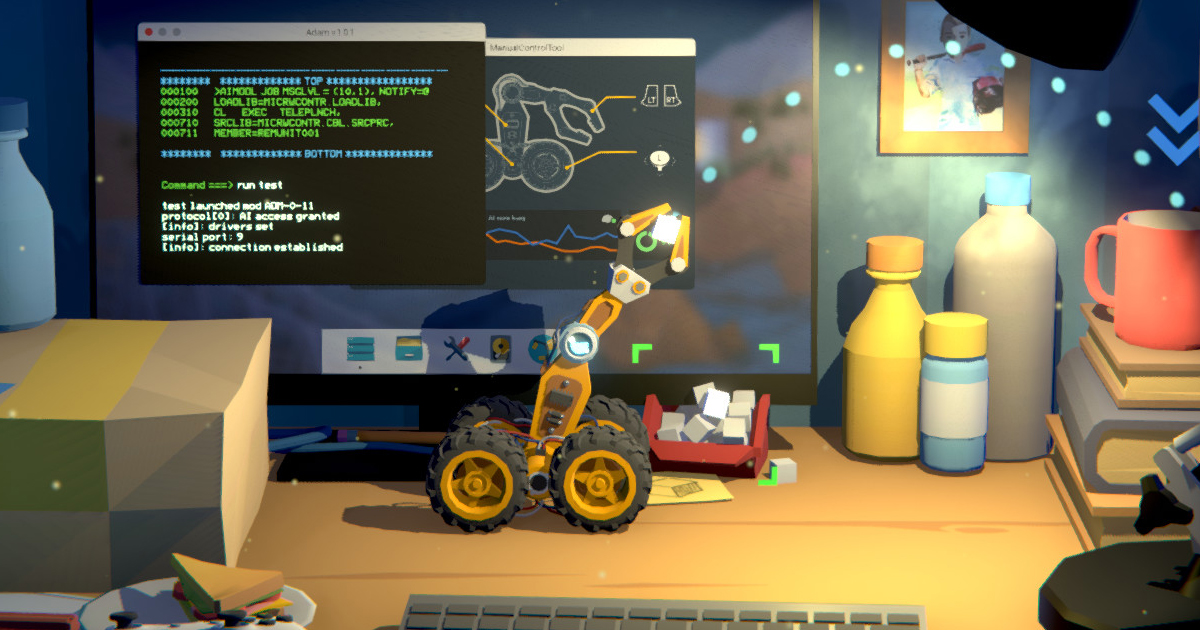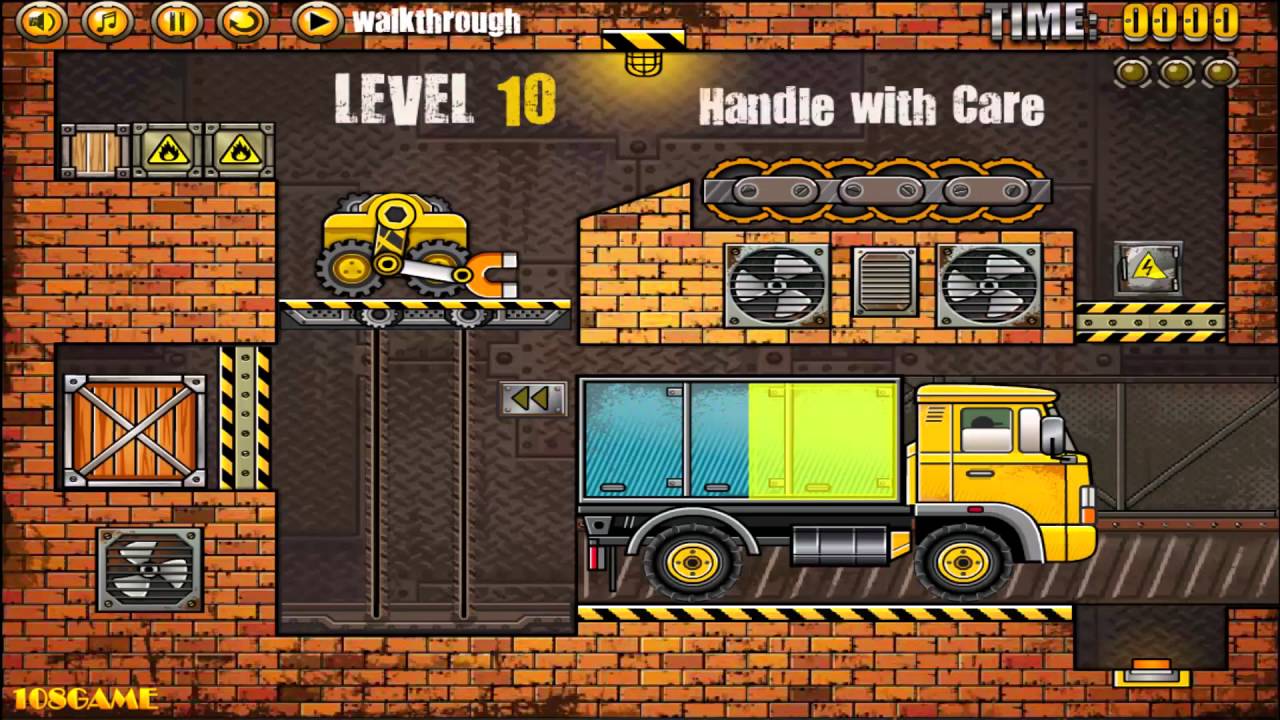The other day App2Top.ru conducted a live broadcast with Alexey “Flazm“ Davydov, an indie developer and head of the studio of the same name. We talked in detail about the development of the Time Loader physical puzzle, the mechanics of the game and the difficulties encountered in the process. They also discussed working with publishers, the modern indie scene and budgets.
About the studio, remote work and development cycles
- Flazm is a distributed team of less than 10 people, including outsourcers. Physically, the studio is located in Vilnius, but many employees work remotely from Russia. Time Loader was made by four people at all.
- According to Davydov, this approach justifies itself in the case of a small team. If dozens or hundreds of people worked in Flazm, it would be much more difficult to organize a “remote” correctly.
- For this reason, Davydov associates numerous postponements of releases with the forced transition of large companies to remote work.
- On average, the development cycle of one game in Flazm takes about two years. Davydov notes that, on the one hand, it is possible to produce projects regularly and earn good money. On the other hand, there are practically no guarantees and stability in the indie segment.
Not everyone passes the valley of death. The winnings can be very large, but for me, as the head of the studio, it is much more important to work competently on the lower bar, i.e. to be able to risk management and combine this with the ship sailing or the locomotive going (in our case), despite the failure. Even if there is no strong takeoff, so that you do not fatally drown at some point. head of Flazm studio
About budgets and publishers
- The earnings of indie developers directly depend on the budget of a particular game and its sales. For example, Time Loader was made relatively cheaply by the standards of the modern industry. Davydov does not name exact figures, but we are talking about hundreds of thousands of dollars.
- Based on this, Flazm can already estimate how much money you need to earn to recoup costs. Now Time Loader is not the project that will “feed” the studio in the near future. The thing is that sales do not yet cover the cost of development.
- That is why the task of an indie developer is to calculate the risks and always have the cushion necessary to continue the team’s activities. One of the options may be a publisher, an investor or another partner.
- According to Davydov, it is now quite easy for an indie developer to get funding if he has an experienced team and a clear project concept. At the same time, it is important to remember that money will not fall from heaven anyway.
head of Flazm Studio
About competition for personnel and self-identification
- At the stage of expansion, indie teams inevitably face the need to compete in the market. Additionally, hiring even seven people in your studio can be a difficult task in a shortage of personnel.
- Today, large companies in Russia are actively hunting developers more than ever, offering them favorable conditions. On the one hand, new talents are constantly emerging. On the other hand, there are not enough experienced personnel in the market, which can be difficult to lure into a small team.
- As Davydov notes, the main problem for an indie studio is not hiring employees, but finding its own face. It can be a recognizable visual style, game design, or any other element that distinguishes the team’s products from competitors.
- One of the positive trends of recent times Davydov calls the emergence of an increasing number of Russian-speaking developers who come to the industry even without much experience. These young teams will become the basis for the formation of a pyramid, at the top of which their stars and new big names will appear in the future.
head of Flazm Studio
About the heyday of the Russian-speaking indie scene
- The indie scene in Russia is developing, not least thanks to local salaries and living standards. Some developers realize that even without big hits, they will be able to earn more on Steam than on their daily work.
- In many Western countries, the situation is reversed. Davydov cites England as an example: “They have a minimum of £20,000 a year there, even if you wash dishes. £20,000 a year — go to indie earn more. Therefore, the indie scene in England, although it is a super-gaming country, is quite specific.”
- Davydov notes that for this reason there are many “ideological developers” in Russia who are engaged in creativity in the evenings or instead of work.
- According to him, Russian-language development can be called a full-fledged industry, given the large number of teams and increased funding flows.
- Davydov believes that sometimes we often forget to celebrate and celebrate what exists around us — including releases such as Black Book or HighFleet. If something is done badly, people actively criticize it, and the appearance of good products is taken for granted.
Finally, this wave, which began maybe five years ago with the appearance of studios, the departure from the mobile to the PC direction. Someone worked in mobile development, got bored, three people stood out in a separate team, began to make indie. It appears on the surface, above the radar. The sand fell into the water for a long time, and finally an island appeared, which is super important to celebrate and celebrate. head of Flazm Studio
Time Loader
About Time Loader
- The gameplay of Time Loader is based on solving puzzles. For experienced users, it may seem short and sometimes too simple — the passage may take only 2.5 hours. Davydov notes that the players who are not experienced in the genre will get the most pleasure from the game. According to statistics, they can spend 6-8 hours in it.
- The concept of Time Loader itself is based on the Truck Loader flash game, which was much more hardcore in terms of physical puzzles. There were no illuminated objects in it, since the level occupied one screen, and all interactive objects were clearly visible.
- In Time Loader, the studio deliberately decided to give players more visual cues. This is due to the three-dimensionality of the levels, the presence of a large number of objects, light sources and shadows. By highlighting objects, Flazm wanted to get rid of pixel-hunting.
Truck Loader 5
- Davydov admits that the team saw and understood all the slack difficulties in Time Loader. The problem was that it is possible to balance these moments only at the beginning of the design of such a three-dimensional location. It’s expensive to change them, and it can easily shift the entire production for another six months.
- The only salvation is prototyping. All levels of Time Loader were first tested on gray blocks without graphics and real objects. However, all levels come together at the final stage, so the team was developing from location to location. Any other approach would simply be ineffective.
- At the beginning of Time Loader there is a moment reminiscent of metroidvanii. First you need to get to the kitchen, and then go back to the living room. However, it was impossible to make the whole game in this style — at least because of the slow speed of movement of the character.
- Work on the plot also moved away from the main gameplay of Time Loader. Initially, Flazm did not want to make a big bet on the narrative, but during development, the team realized that the project had its own aesthetics, suitable for telling an interesting story.
- Another challenge was the creation of wheel physics. There were many limitations in Time Loader that depended on the friction settings and the applied force. It turned out to be difficult to create correctly working mechanics both from the point of view of development and from the point of view of testing.
- According to Davydov, it is always difficult for a small team to gather an audience before launching their game. In the case of Time Loader, throughout the development, the studio held various contests twice a week in the community of its previous game Train Valley 2.
- At the end, Davydov spoke about his experience working with META Publishing and gave some advice to indie developers. According to him, the conclusion of a contract with a publisher is primarily a matter of cooperation and the distribution of responsibilities.
The moment of pitching to the publisher is the first moment when your game collides with the market. If no one is ready to invest real money in it, then something is wrong with the concept a priori. There are no fools sitting in the publishing house — these are experienced people who are in this business all the time. They see trends, work with the market and see where and how different games can be monetized. Working with a publisher is beneficial because it increases your chances, and it gives you extra leverage. Ideally, you can earn more together than you will lose. head of Flazm Studio



